First, my usual disclaimer and explanation.
This list is not meant to assess the thousands of Christian books published each year, let alone every interesting book published in 2018. There are plenty of worthy titles that I am not able to read (and lots I never hear of). This is simply a list of the books (Christian and non-Christian, but all non-fiction) that I thought were the best in the past year.
When I say “best” I have several questions in mind:
• Was this book well written and enjoyable to read?
• Did I find it personally challenging, illuminating, edifying, or entertaining?
• Is it a book I am likely to reread or consult again?
• Do I see myself recommending this book to others?
Undoubtedly, the “best” books reflect my interests. This doesn’t mean I agree with every point in these books, but it does mean I found them helpful and insightful.
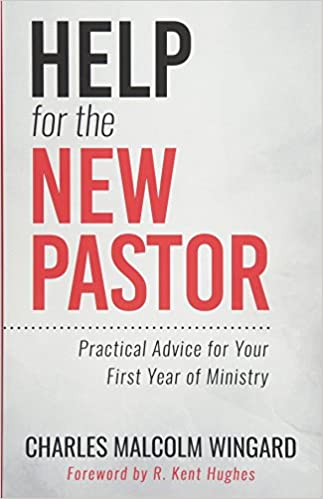
10. Charles Malcolm Wingard. Help for the New Pastor: Practical Advice for Your First Year of Ministry (P&R Publishing). The book is what it says it is: a great resource of practical advice for pastors. I’d say especially the new pastor, but not exclusively. Every page has helpful wisdom on various aspects of pastoral ministry–from visitation to administration to preaching to counseling to leading in worship.
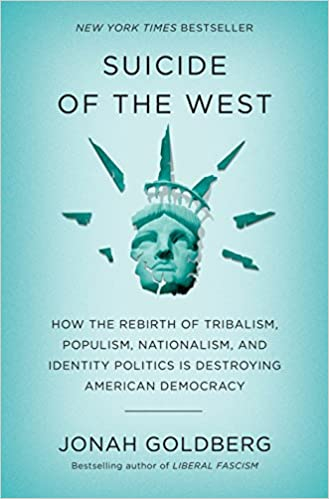
9. Jonah Goldberg. Suicide of the West: How the Rebirth of Tribalism, Populism, Nationalism, and Identity Politics is Destroying American Democracy (Crown Forum). In some ways, a deeply flawed book in that Goldberg–a noted conservative author and secular Jew–removes God from the equation in the very first sentence. And yet, Goldberg is surely right to warn us that we have grossly overlooked, and are in danger of losing, the “Miracle” that is modern freedom and prosperity.
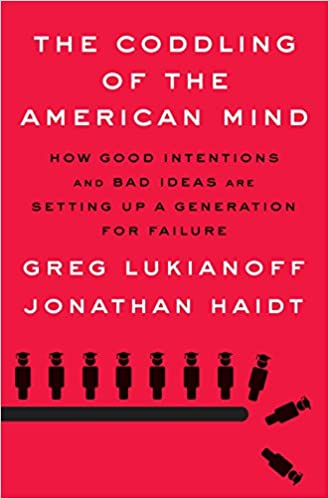
8. Greg Lukianoff and Jonathan Haidt. The Coddling of the American Mind: How Good Intentions and Bad Ideas are Setting Up a Generation for Failure (Penguin Press). Like Goldberg, the authors here do not write with a Christian understanding of creation, anthropology, or how people change (so, for example, I don’t think cognitive behavioral therapy is the answer to what ails us). But Lukianoff and Haidt have put their finger on something important, especially in Part I where they expose the untruth of fragility (what doesn’t kill you makes you weaker), the untruth of emotional reasoning (always trust your feelings), and the untruth of us versus them (life is a battle between good people and evil people).
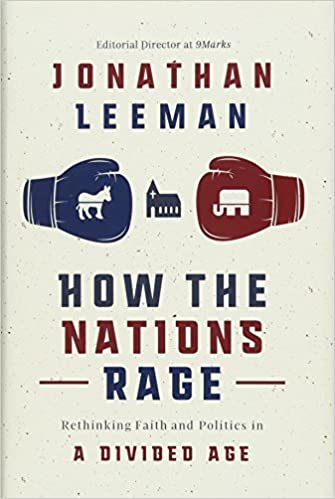
7. Jonathan Leeman. How the Nations Rage: Rethinking Faith and Politics in a Divided Age (Thomas Nelson). This topic—the intersection of faith and politics—is one Jonathan knows a lot about, from his years ministering in D.C. to his doctoral work on politics and ecclesiology. Jonathan cuts through a lot of fuzzy thinking (on both sides of the political divide) and helps us see what is black and white and what is gray.
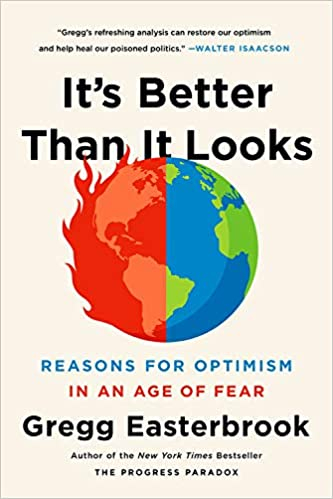
6. Greg Easterbrook. It’s Better than It Looks: Reasons for Optimism in an Age of Fear (Public Affairs). Several books on this top ten list examine what’s wrong with the world and with America in particular. And there’s a lot to say on both fronts. But Easterbrook reminds us that while specific individuals, industries, and segments of societies have seen their lot in life decline, on a global scale life has gotten massively better over the past 50 years. We have more food from fewer animals and less land than ever before. People live longer than ever before. More people have been lifted out of poverty than ever before. Violence and warfare are down. Dictators are in decline. Pollution is less. Technology has made us safer. And the list goes on. Not the last word on the state of the planet, but an important word.
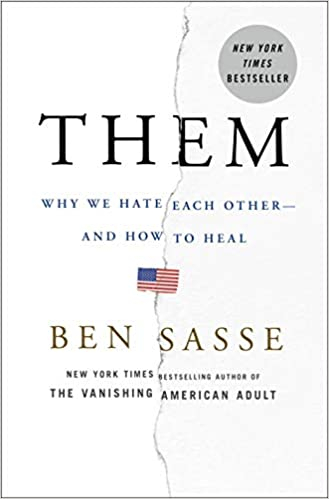
5. Ben Sasse. Them: Why We Hate Each Other–and How to Heal (St. Martin’s Press). The title is a little misleading. While political polarization is an important theme, the book is really about healthy people leading healthy families that build healthy communities that make up a healthy nation. Sasse–the junior senator from Nebraska–is refreshingly down to earth, practical, self-aware, unimpressed with himself, and focused on “the habits of the heart and mind that make us neighbors and friends.” Not what we’ve come to expect from our elected officials.
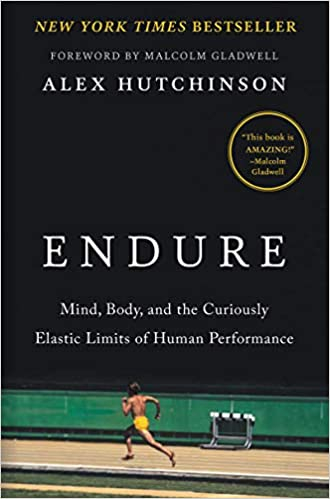
4. Alex Hutchinson, Endure: Mind, Body, and the Curiously Elastic Limits of Human Performance (William Morrow). With Breaking2—the 2017 Nike-led project to run a sub-two hour marathon—as his backdrop, Hutchinson (a runner, columnist, researcher, and Cambridge PhD) explores the limits of athletic achievement and human endurance. This isn’t a training volume with secrets for getting a PR in your next race. Instead, it’s a journalistic examination of the different theories, studies, stories, and scholars trying to answer the simple question: what makes people keep going and what makes them stop? To that end, Hutchinson has chapters on muscles, heat, oxygen, thirst, fuel, and belief. His conclusion? We don’t finally know what makes people push through pain, but there is at least as much brain and belief involved as body and brawn.
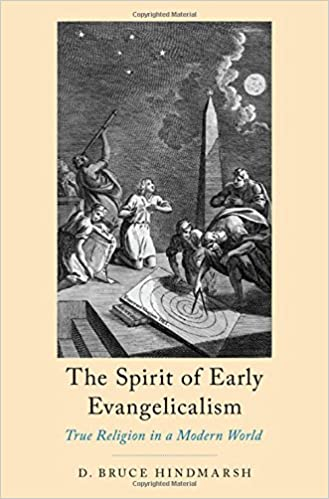
3. D. Bruce Hindmarsh. The Spirit of Early Evangelicalism: True Religion in a Modern World (Oxford). In this important new work on evangelical devotion, Hindmarsh, a top flight historian and professor at Regent College, focuses on Edwards, Whitefield, and the Wesleys, but goes far beyond them in his analysis. Without discounting doctrinal continuity with the past, Hindmarsh argues that evangelical devotional ideas and practices were innovative, rooted in antecedent spiritual traditions, but new in their language and eclecticism.
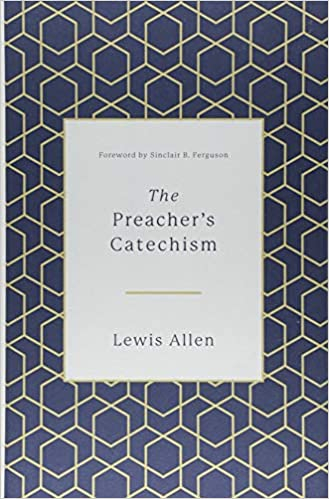
2. Lewis Allen. The Preacher’s Catechism (Crossway). I’m always thankful for books that simultaneously convict and encourage. Using the Westminster Shorter Catechism as his inspiration and (loose) guide, Allen goes through 43 questions and answers designed to remind the busy/distracted/discouraged/puffed-up/cast-down preacher what really matters (and what doesn’t) in a life of faithful ministry. A Puritan throwback.
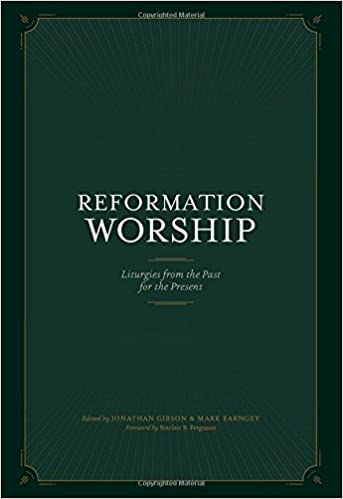
1. Jonathan Gibson and Mark Earngey (eds). Reformation Worship: Liturgies from the Past for the Present (New Growth Press). My top book from 2018 is likely to be the least purchased and least read of all the books on this list. And at nearly 700 pages, it’s also the biggest of the books here. But that’s part of what makes the book so valuable. Few people will read straight through, cover to cover, a collection of Reformation-era liturgies (I didn’t). But the sheer size of this volume tells us something important. Namely, the Reformers thought a lot about worship. It was essential to their Reformation project, which makes our relative indifference to the forms and flow of worship all the more surprising (and scandalous). Every Reformed pastor and worship leader with a book budget should have this on their shelves.



